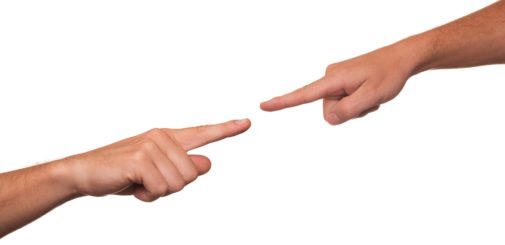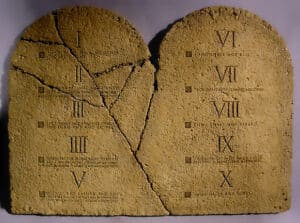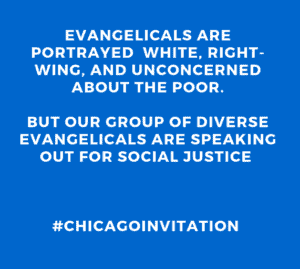
I only have two feet, but I stand in a lot of different camps.
I was raised as an evangelical in the American South at a Southern Baptist church, and yet my home church ordains women. My father is a retired US Army Chaplain and Iraq war veteran, and yet I married into a family of pacifist Mennonites. I am a youth pastor at a Baptist church, and yet one of my pastoral supervisors is a Muslim woman. I try to keep my students from using meaningless words and phrases of “Christianese,” and yet one of my friends recently introduced me as a “man of the cloth” at a party. I have a lot of family and friends who would identify as political conservatives, and yet I have many other friends who would identify as political liberals or progressives.
I’ve found that the political divide in the United States has been one of the most frustrating divides for me to understand. There’s a reason why Thanksgiving dinners have a reputation for inducing anxiety and inspiring conflict.(1) We’ve adopted the belief that any amount of political disagreement with someone makes them our enemies. I think that’s one of the unfortunate consequences of being limited to a two-party system of government—if we disagree with someone about one thing, we’re conditioned to oppose them at any and every stance, ceding no ground and showing no mercy.
We’ve adopted the belief that any amount of political disagreement with someone makes them our enemies.
I find “left and right” or “liberal and conservative” labels to be increasingly unhelpful, in part because of how they are so often used as ways to determine who is in or out of the “tribe.” Regardless of the words that you use to describe yourself, Dave Rubin has a lot of good points in his video “Why I Left the Left.” He points out that this kind of antagonizing and demonizing happens in progressive circles as well as conservative circles. As much as progressives tout “tolerance” as a virtue, they often don’t tolerate deviation from their ideology any more than conservatives do. Frankly, I think that’s part of human nature or our social evolution—we see “different” as a threat.
Thankfully, Jesus offers us a response to our divisive human nature. Jesus so frequently rejected the strict construction of labels and taking sides. When the religious leaders wanted him to condemn a woman caught in adultery, Jesus took the opportunity to invite them to examine their own sins. He refused to play their games. Last Sunday my senior pastor preached on the story of Judas in John 13, which I’ve always found to be an emotionally powerful and compelling story. I’ve often felt compassion for Judas because I see my own sinfulness and betrayal in his story. As I often do, I thumbed over to other gospel accounts for a comparison and saw that in Matthew 26:50, as Jesus was about to be betrayed by a man who had been his follower for three years, our Lord said to Judas: “My friend, go ahead and do what you have come for” (emphasis added). Jesus’ words hit me like a ton of bricks. Not only do the gospels say that Jesus broke bread with the man that would betray him, but he called him “friend.”
Thankfully, Jesus offers us a response to our divisive human nature.
Brothers and sisters, shouldn’t we be following the example of Jesus? One of the things that I’ve loved about my church is its diversity. If you come to our Wednesday night prayer meeting you’ll sometimes see two cars parked next to each other, each with respective “Impeach Obama” and “Bernie for President” bumper stickers. And yet, those two people pray with and for each other every Wednesday night. Whether you find yourself on one end of the political spectrum or the other, let’s rid ourselves of the oversimplified idea that those who disagree with us are evil, or don’t love Jesus, or hate the poor, or hate unborn children. Let’s seek instead to listen to each other, break bread together, and call one another “my friend.”
Joshua Carson is a Sider Scholar at Palmer Theological Seminary.
- If Adele could bridge the political divide, you would think that Jesus Christ would have a chance.


